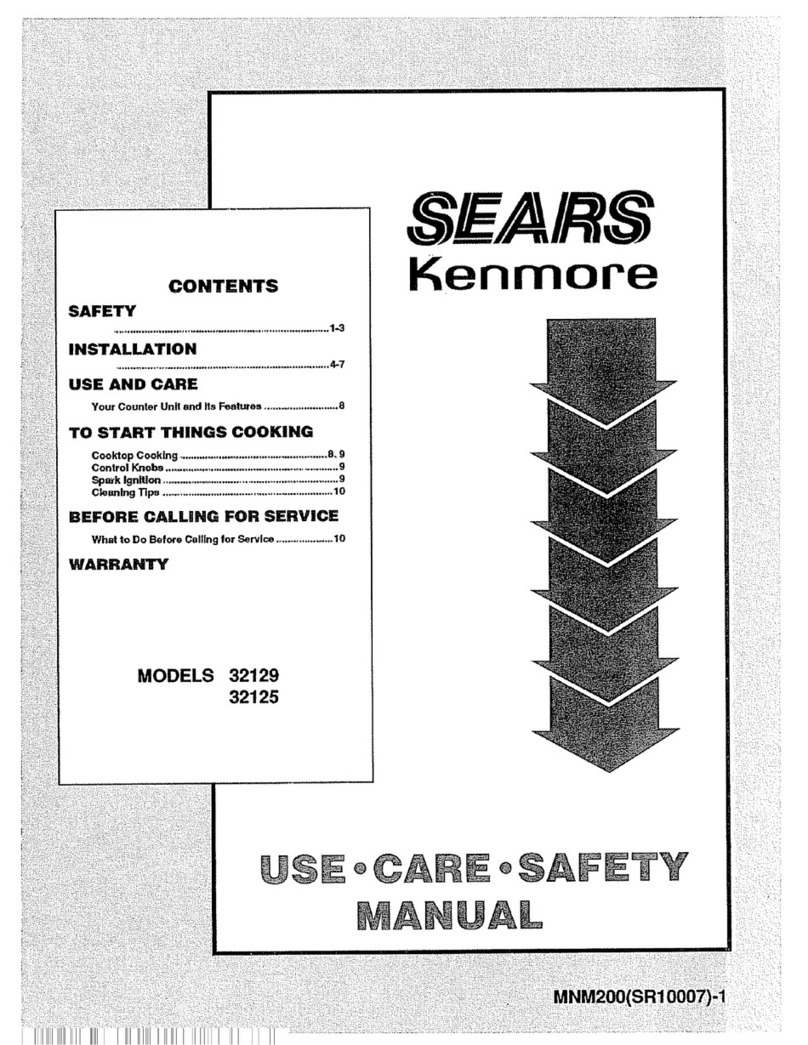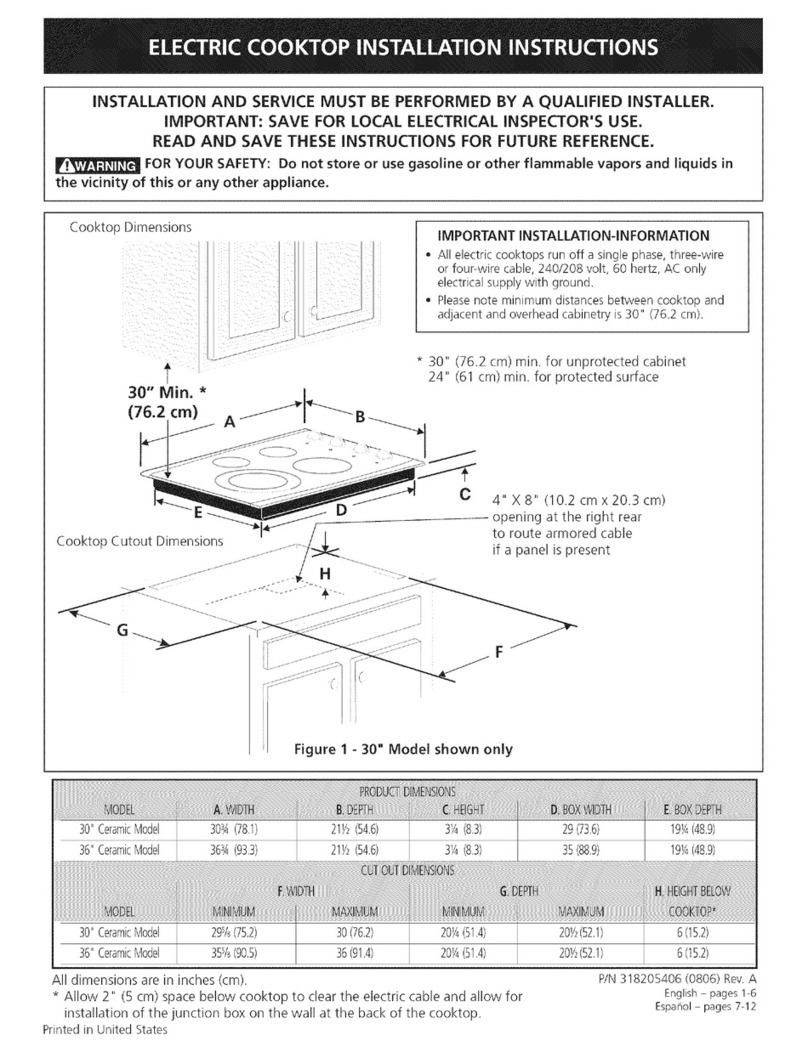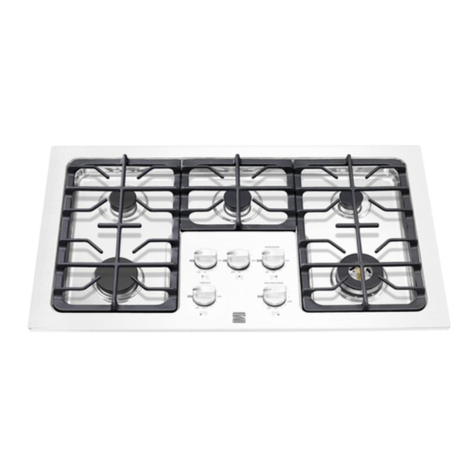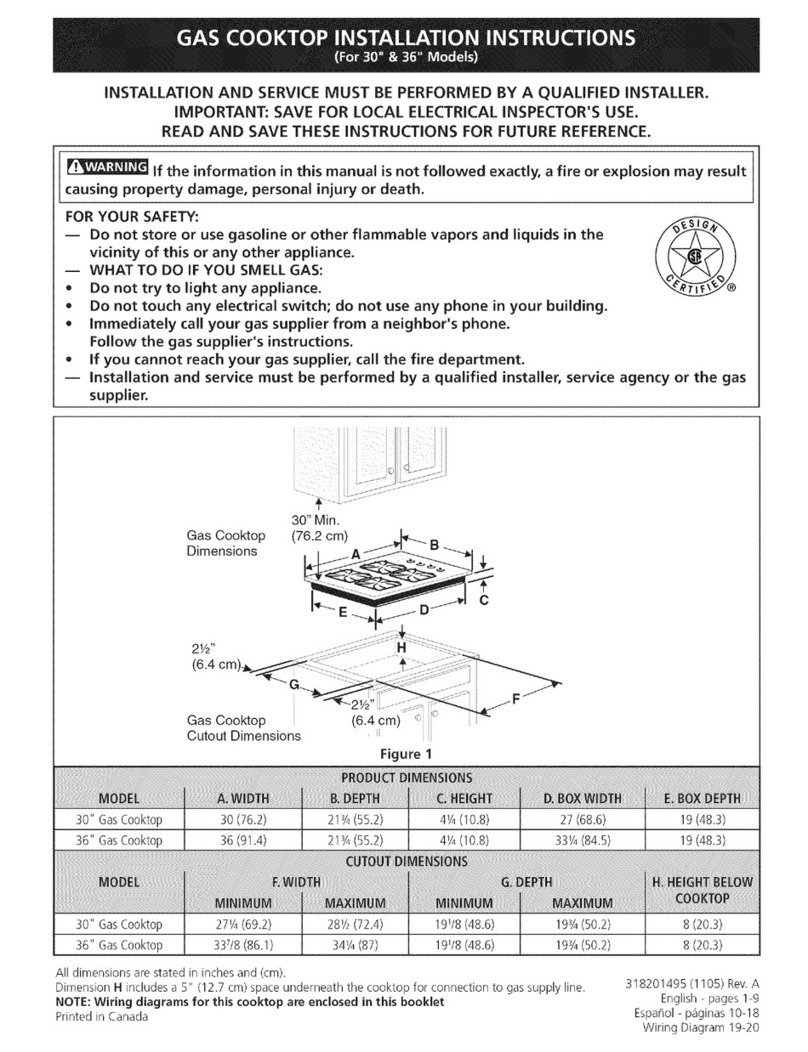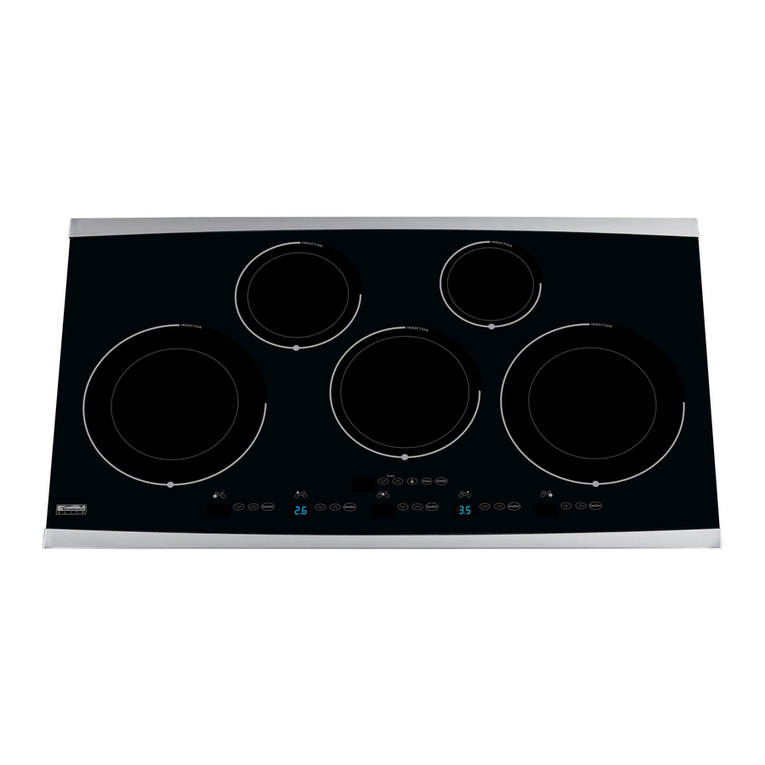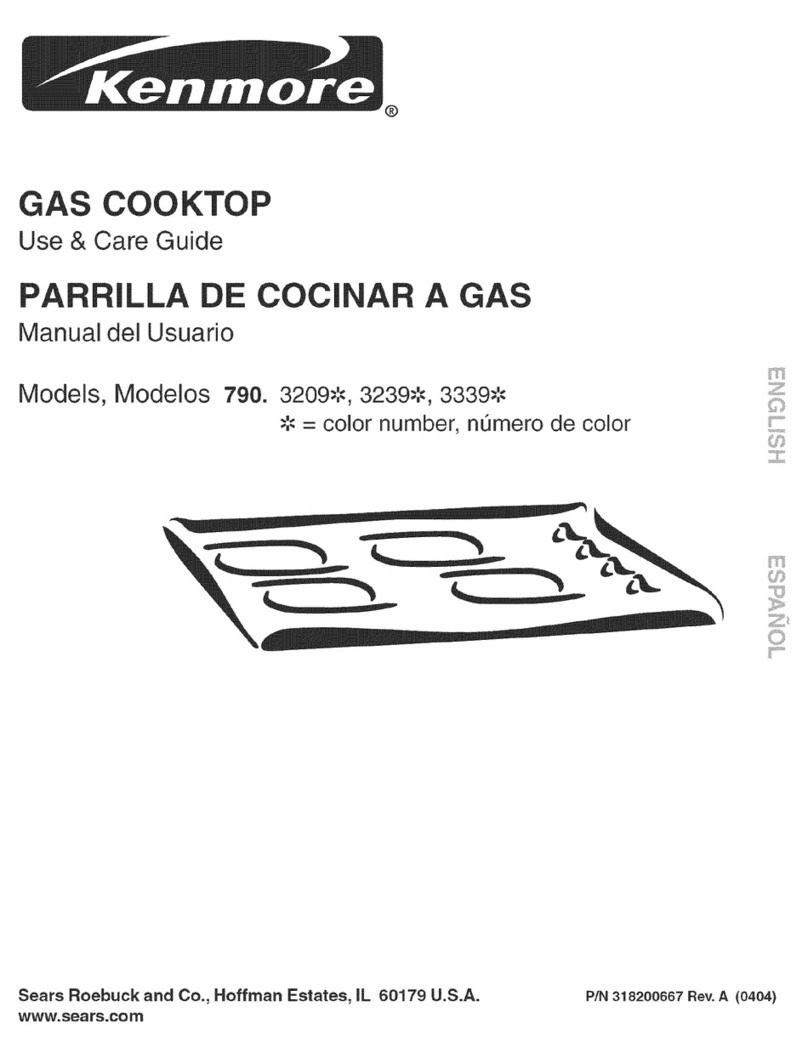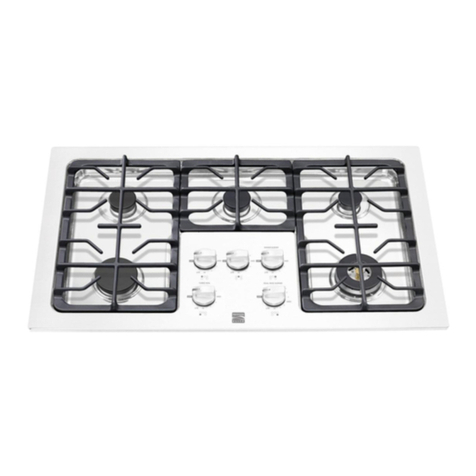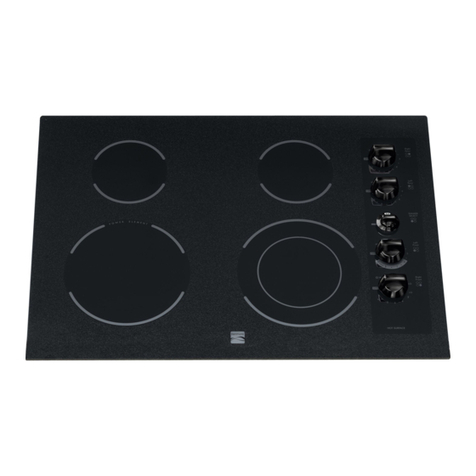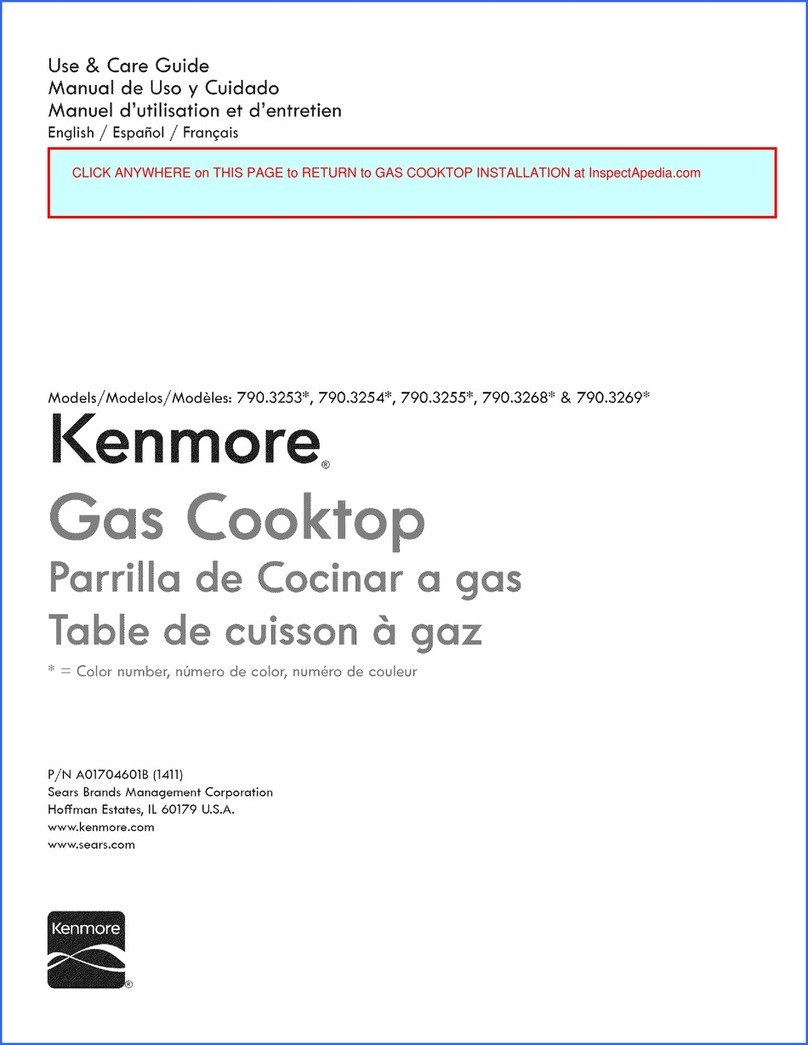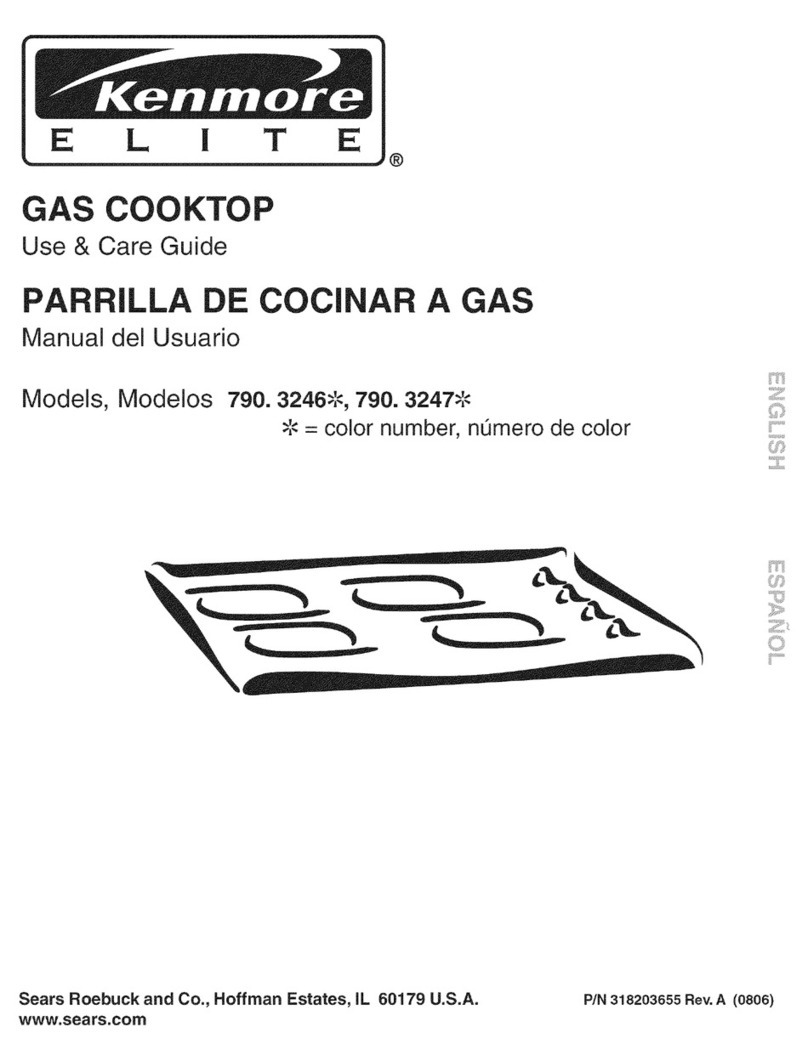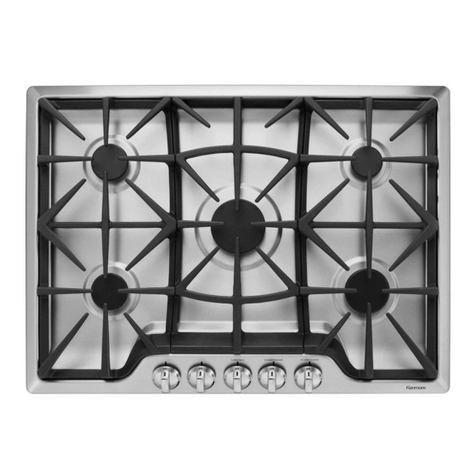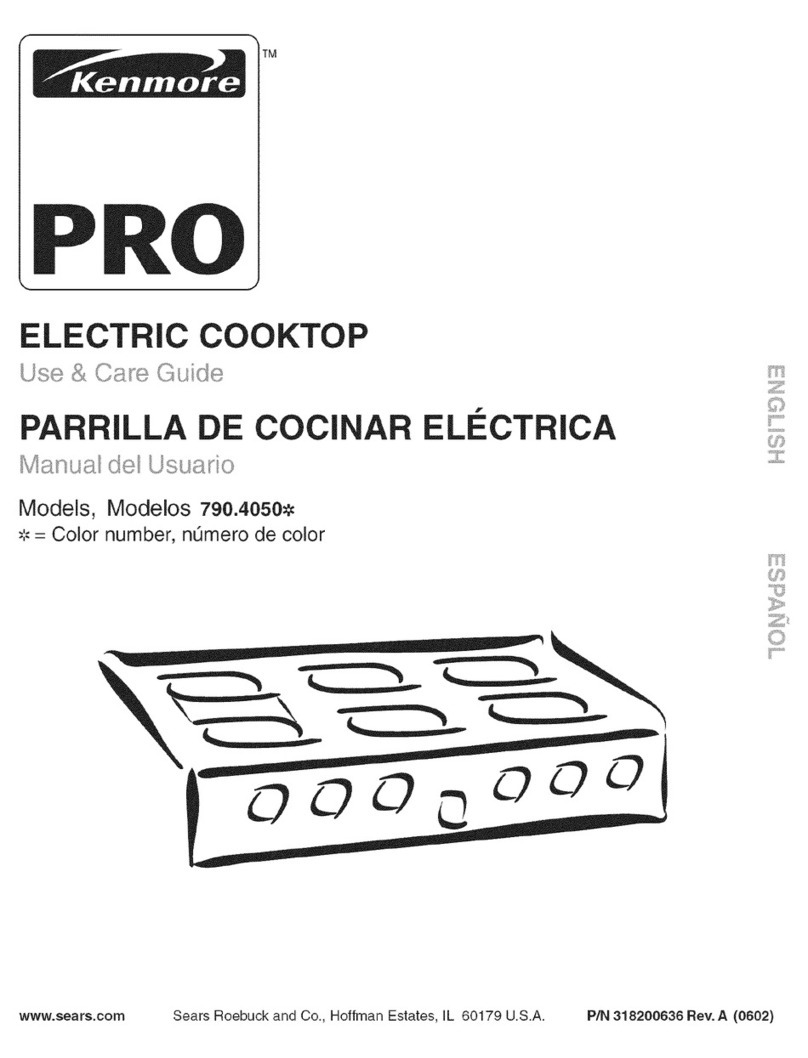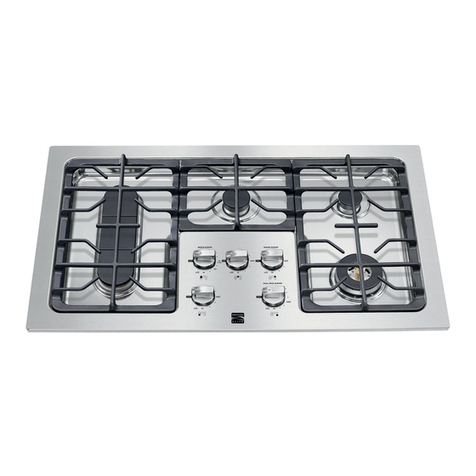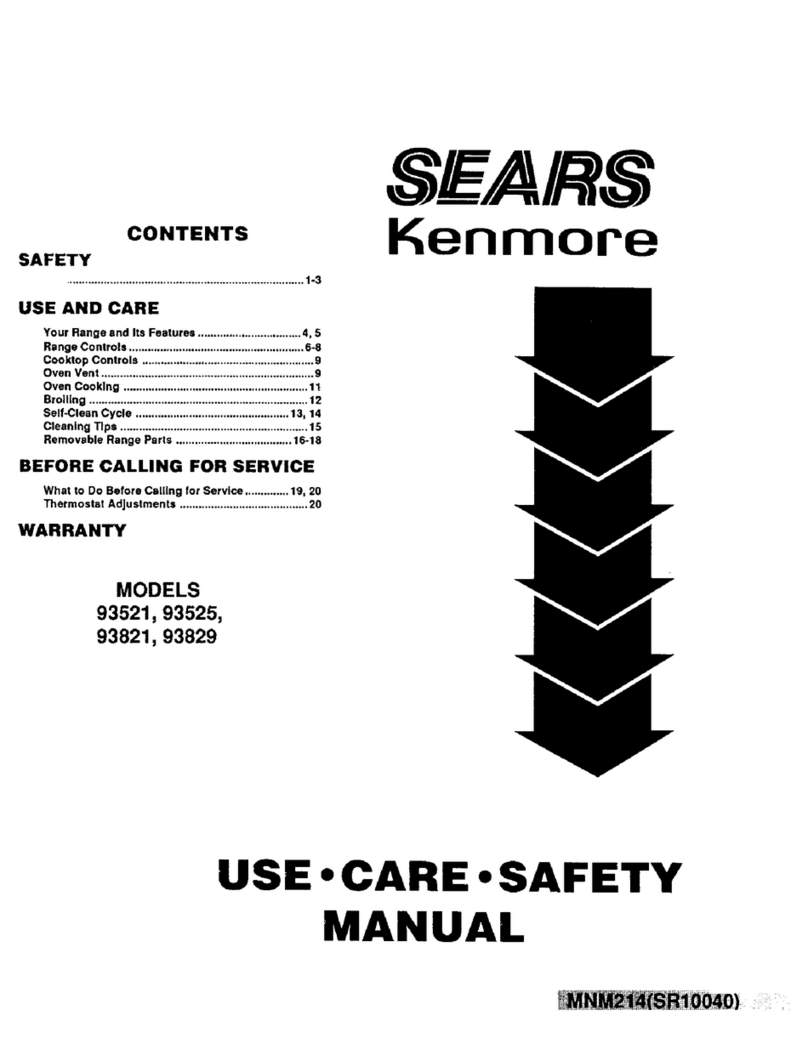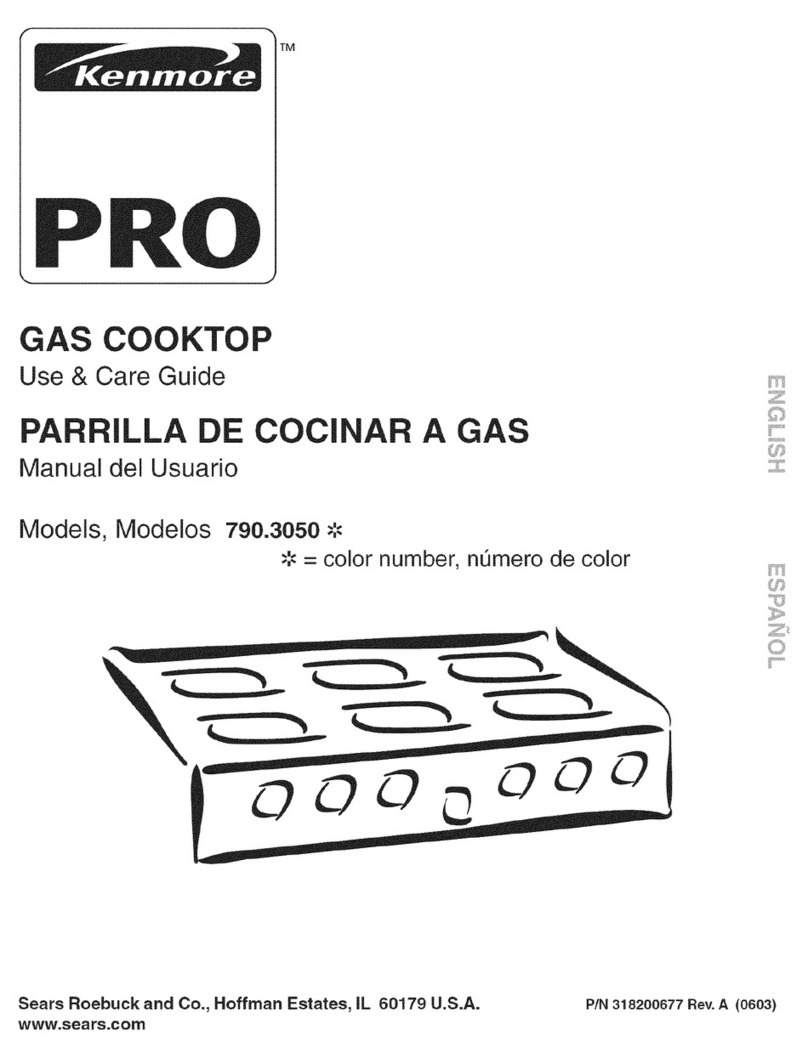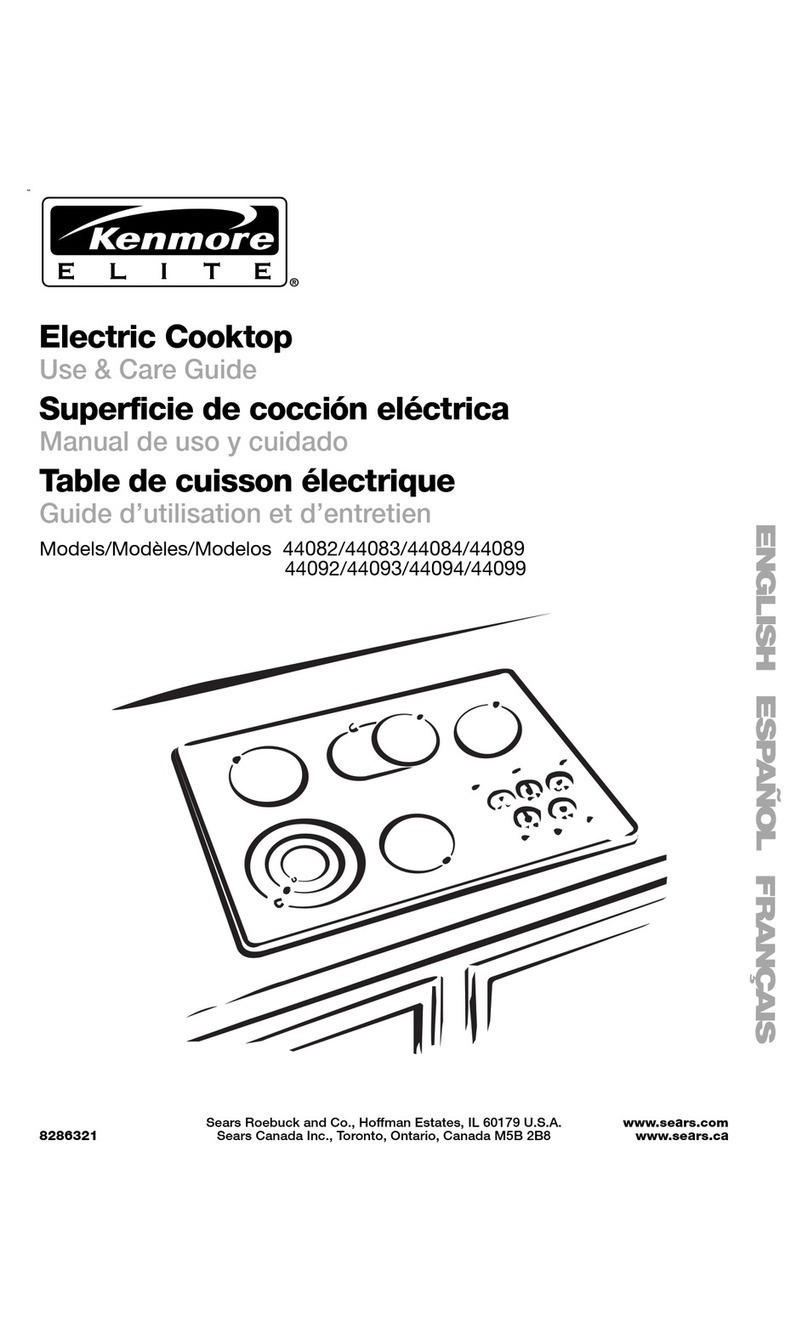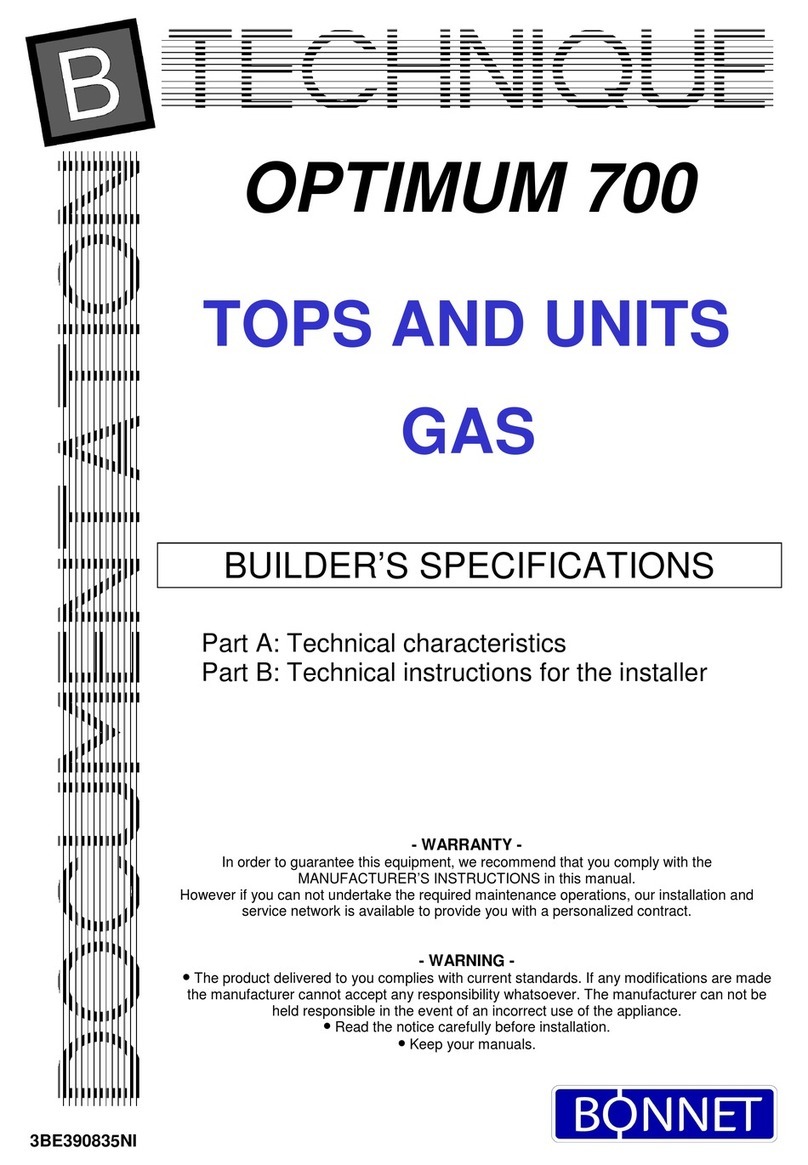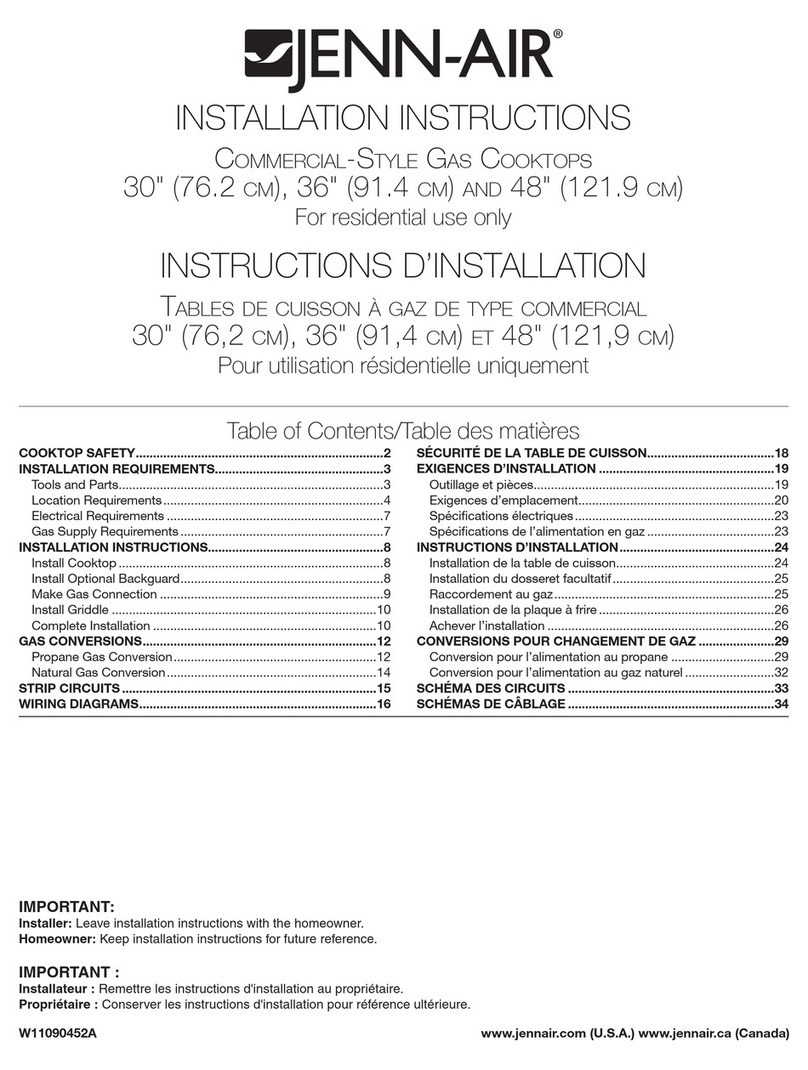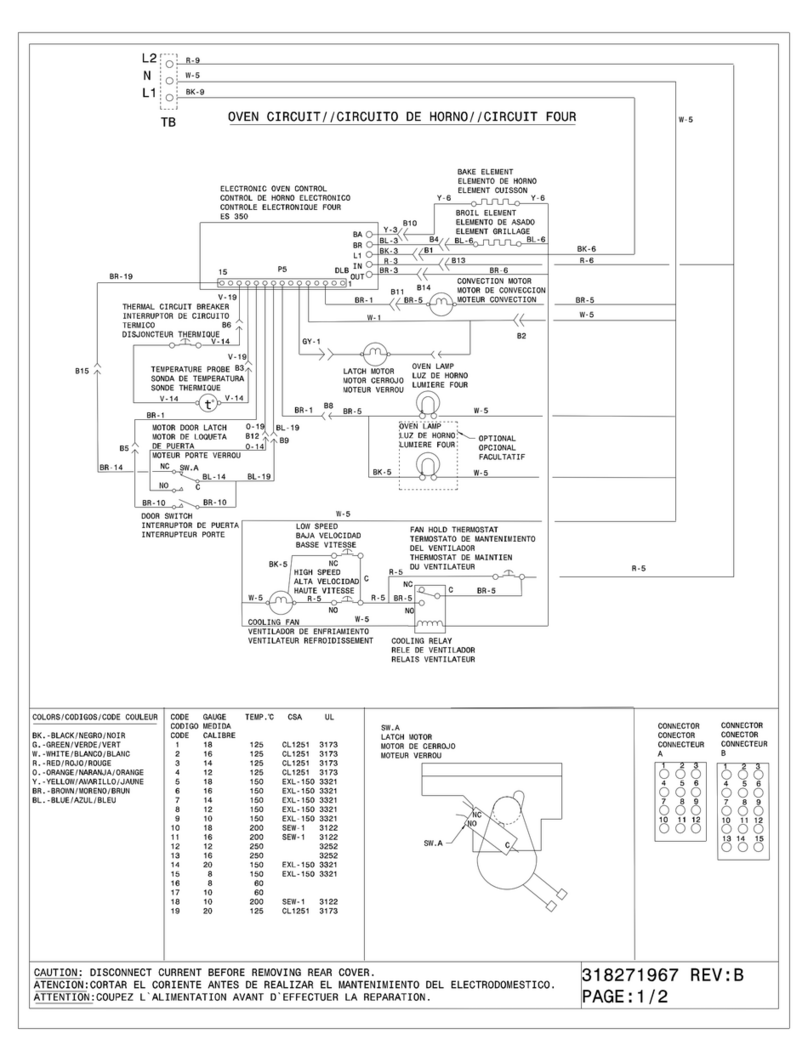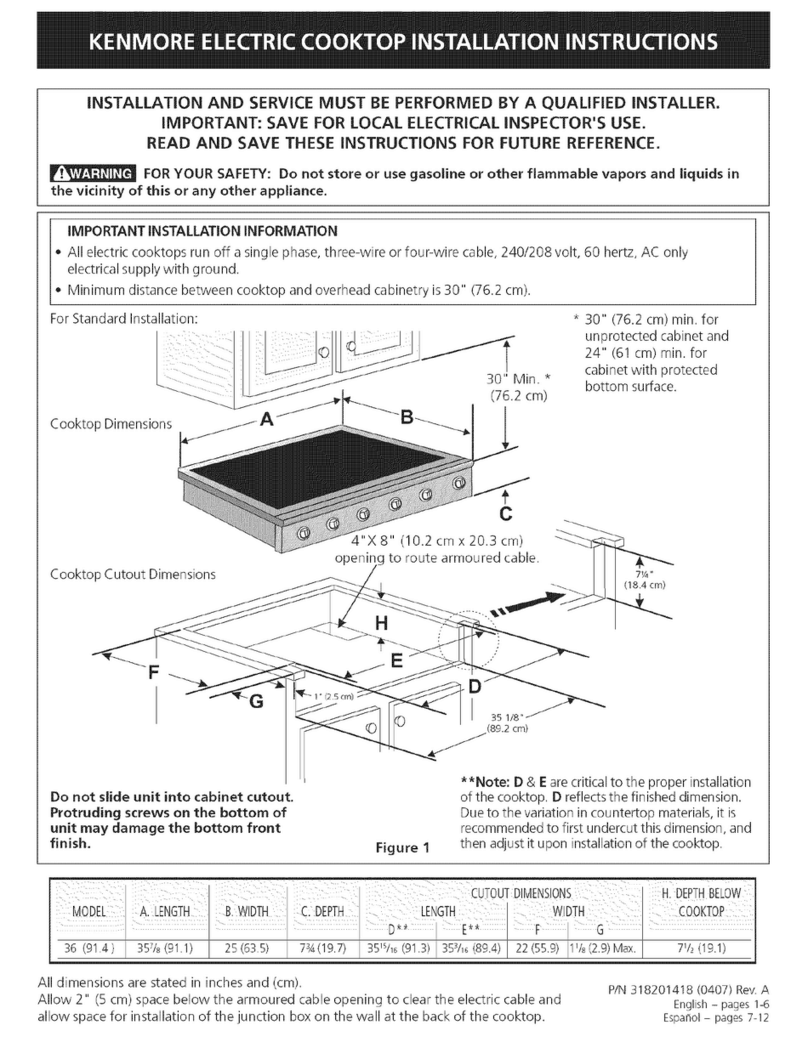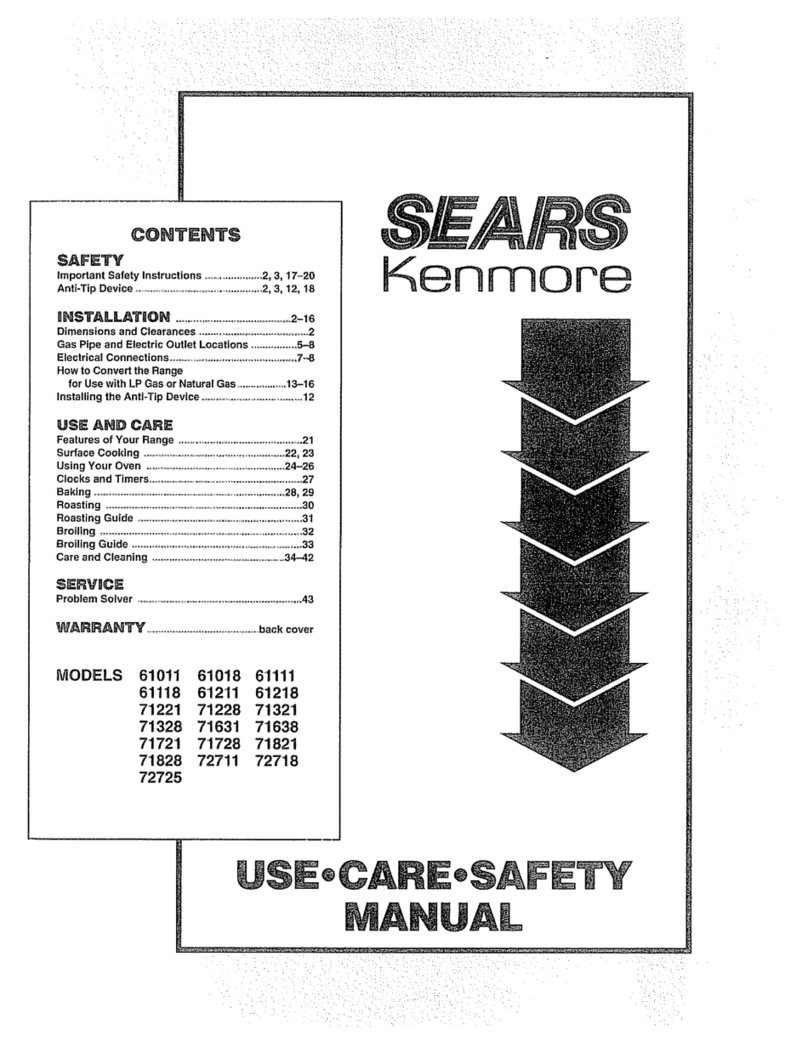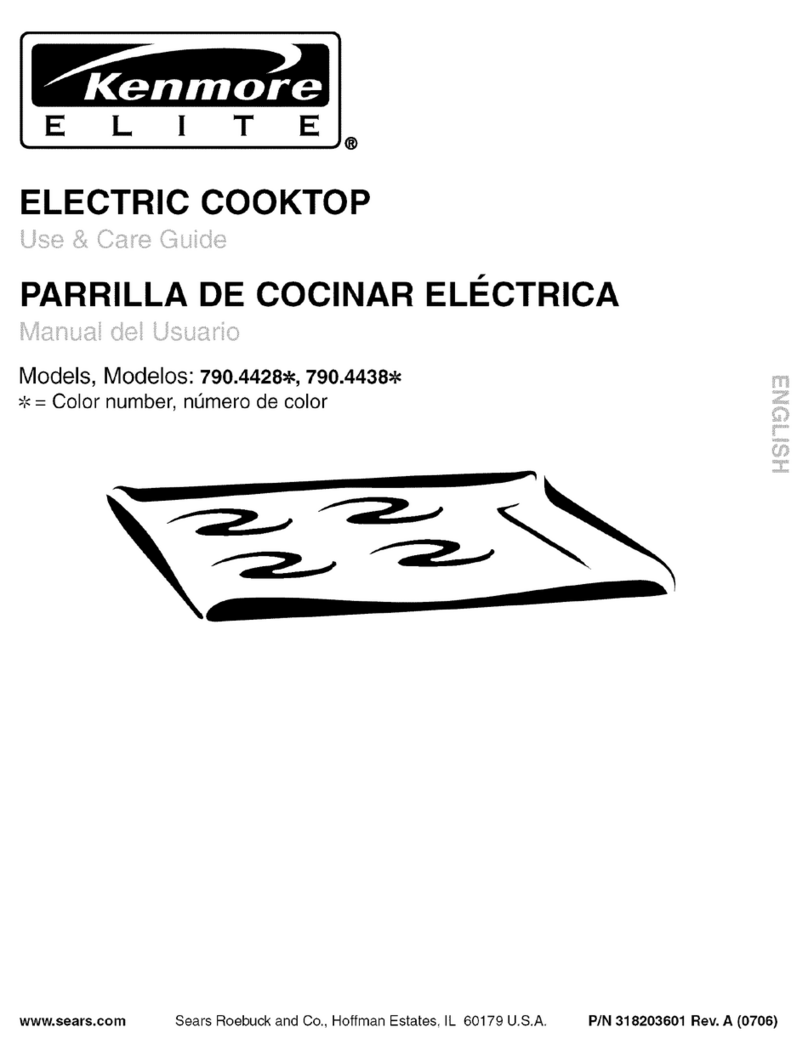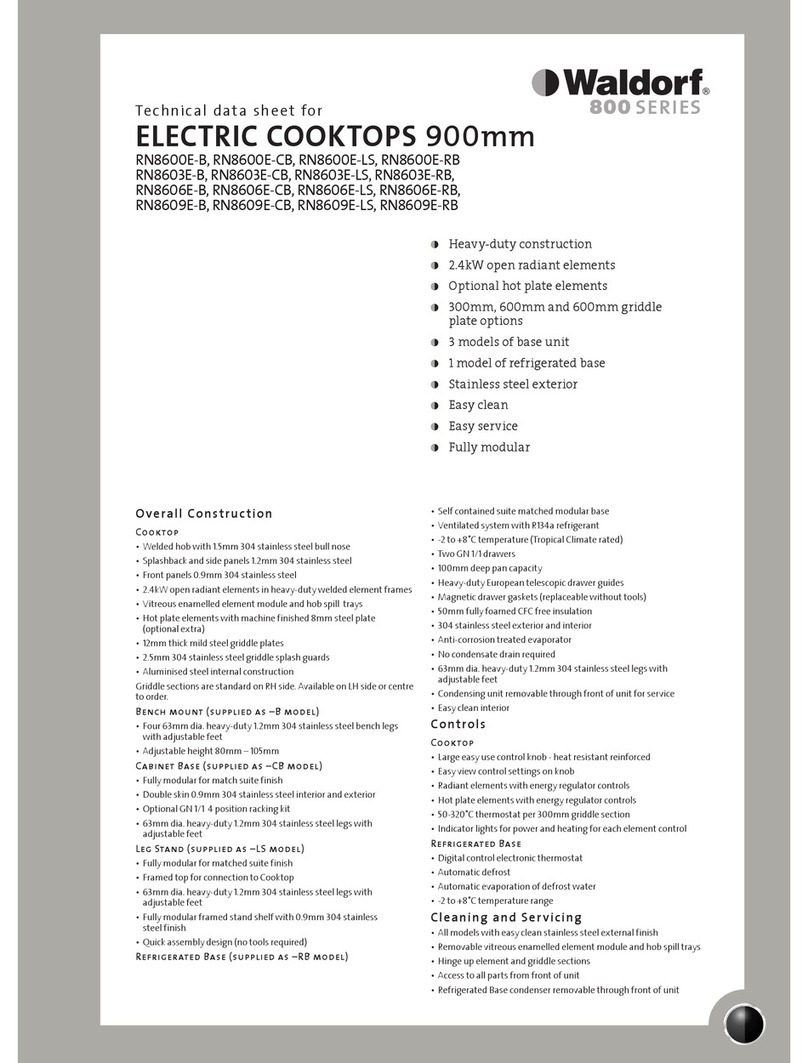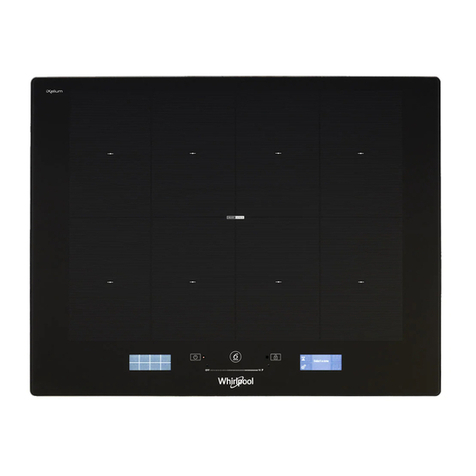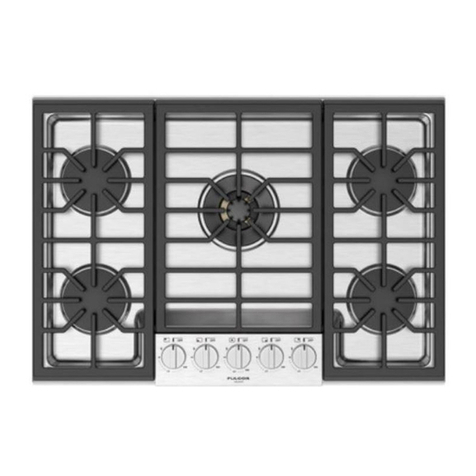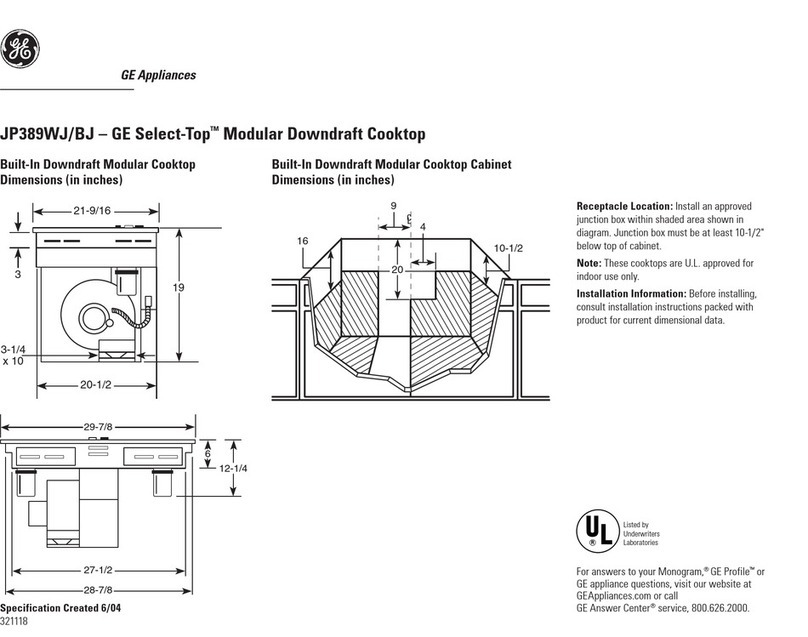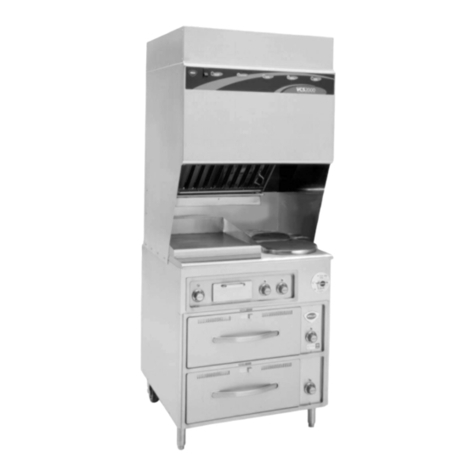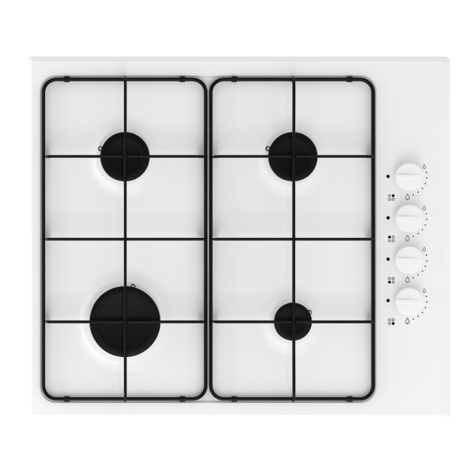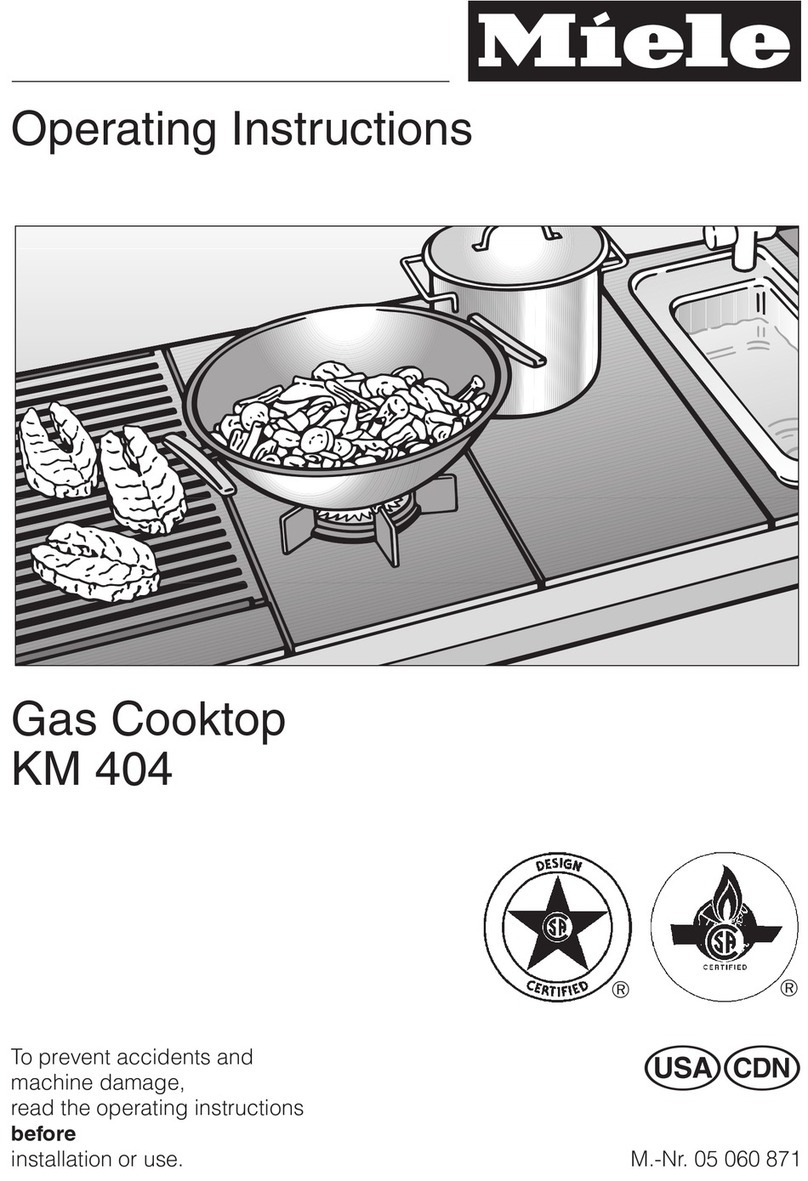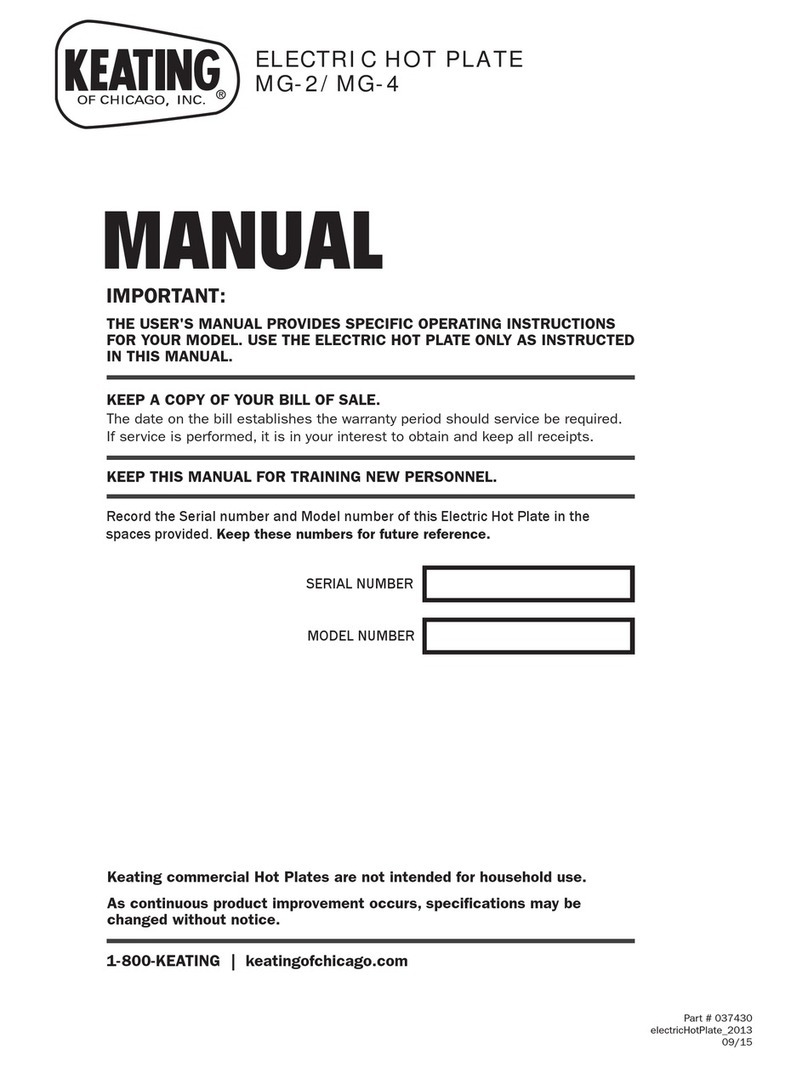
4
Important Safety Instructions
Do not use the oven or warmer drawer (if
equipped) for storage.
• Storageinoronappliance—Flammablematerials
should not be stored in an oven, near surface units
or in the drawer (if equipped). This includes paper,
plastic and cloth items, such as cookbooks, plasticware
and towels, as well as flammable liquids. Do not store
explosives, such as aerosol cans, on or near the
appliance. Flammable materials may explode and result
in fire or property damage.
• Wearproperapparel—Loose-ttingorhanging
garments should never be worn while using the
appliance. Do not let clothing or other flammable
materials contact hot surfaces.
• Donotusewaterorourongreaseres—Smother
the fire with a pan lid, or use baking soda, a dry
chemical or foam-type extinguisher.
• Whenheatingfatorgrease,watchitclosely. Fat or
grease may catch fire if allowed to become too hot.
• Useonlydrypotholders—Moistordamppotholders
on hot surfaces may result in burns from steam. Do
not let potholders touch hot heating elements. Do not
use a towel or other bulky cloth instead of a potholder.
• Donotheatunopenedfoodcontainers—Buildupof
pressure may cause container to burst and result in
injury.
• Removetheovendoorfromanyunusedrangeifitis
to be stored or discarded.
IMPORTANT—Donotattempttooperatetheoven
during a power failure. If the power fails, always turn
the oven off. If the oven is not turned off and the power
resumes, the oven may begin to operate again. (Food left
unattended could catch fire or spoil.)
Electronic controllers can be damaged
by cold temperatures.When you use your appliance
for the first time, or if it has not been used for a long
period of time, make sure that it has been exposed to a
temperature above 0°C/32°F for at least 3 hours before
connecting it to the power supply.
IMPORTANT INSTRUCTIONS FOR USING
YOUR COOKTOP
• Knowwhichknobcontrolseachsurfaceheating
unit. Place a pan of food on the unit before turning it on,
and turn the unit off before removing the pan.
• Useproperpansize.This appliance is equipped with
one or more surface units of different sizes. Select
utensils having flat bottoms large enough to cover the
surface unit. The use of undersized utensils will expose
a portion of the surface heating unit to direct contact and
may result in ignition of clothing. Proper relationship of
utensil to the surface unit will also improve efficiency.
• Utensilhandlesshouldbeturnedinwardandnot
extend over adjacent surface units. To reduce the risk
of burns, ignition of flammable materials, and spillage
due to unintentional contact with the utensil.
• Neverleavesurfaceburnersunattendedathigh
heat settings—Boilovers cause smoking and greasy
accumulations that may ignite, or a pan that has boiled
dry may melt.
• Protectiveliners—Do not use aluminum foil to line
oven bottom or any other part of the appliance. Only use
aluminum foil as recommended for baking if used as a
cover placed on the food. Any other use of protective
liners or aluminum foil may result in a risk of electric
shock or fire or short circuit.
• Glazedcookingutensils—Only certain types of glass,
glass/ceramic, ceramic, earthenware, or other glazed
utensils are suitable for rangetop service without breaking
due to the sudden change in temperature. Check the
manufacturer’s recommendations for cooktop use.
• Donotusedecorativesurfaceelementcovers. If an
element is accidentally turned on, the decorative cover
will become hot and possibly melt. Burns will occur if the
hot covers are touched. Damage may also be done to
the cooktop.
• Whenamingfoodsunderaventilatinghood,turn
the fan on.
FOR GLASS COOKTOPS ONLY
• Donotcookonorcleanabrokencooktop—If cooktop
should break, cleaning solutions and spillovers may
penetrate the broken cooktop and create a risk of electric
shock. Contact a qualified technician immediately.
• Cleancooktopglasswithcaution—If a wet sponge
or cloth is used to wipe spills on a hot cooking area,
be careful to avoid a steam burn. Some cleaners can
produce harmful fumes if applied to a hot surface.
• Avoidscratchingthecooktopglasswithsharpobjects.
IMPORTANT INSTRUCTIONS FOR USING
YOUR OVEN
• Usecarewhenopeningovendoororwarmerdrawer
(if equipped)—Stand to the side of the range when
opening the door of a hot oven. Let hot air or steam
escape before you remove or replace food in the oven /
warmer drawer.
• Keepovenventductsunobstructed. The oven vent
is located at right side of the front panel and visible
when the oven door is open. Touching the surfaces in
this area when the oven is operating may cause severe
burns. Also, do not place plastic or heat-sensitive items
on or near the oven vent. These items could melt or
ignite.
• Placementofoven/warmerdrawer(ifequipped)
Racks. Always place oven racks in desired location
while oven/warmer drawer (if equipped) is cool. If rack
must be moved while oven is hot use extreme caution.
Use potholders and grasp the rack with both hands to
reposition. Do not let potholders contact the hot heating
elements in the oven/warmer drawer (if equipped).
Remove all utensils from the rack before moving.
• Donotusethebroilerpanwithoutitsinsert. The
broiler pan and its insert allow dripping fat to drain and
be kept away from the high heat of the broiler.
